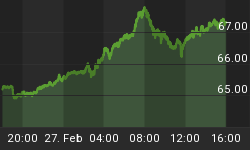Mists gather over dubious government practices. The collapse of MF Global should have scared the wits out of U.S. investors. If you haven't panicked yet, there is still time. Since public discussion of its demise lasted about 45 minutes, we are left to speculate. A possible, but sketchy summary might run: a securities firm, run by the former senior partner at Goldman Sachs, took a leveraged position in speculative bonds that caused the eighth largest bankruptcy in U.S. history. Thousands of brokerage customers, who believed their accounts were segregated from MF Global's account, are left to conclude (given the silence of government agencies), that their money is gone. And, MF Global may have done nothing illegal (protected within the boundaries of CFTC Rule 1.29).
Now, the good news: a government employee - a judge - who is fighting for the common man.
Judge Jed S. Rakoff of the United States District Courts of the Southern District of New York struck a blow against the Securities and Exchange Commission and in support of the "public interest." The Securities and Exchange Commission had asked the Court to approve a Consent Judgment between Citigroup and the S.E.C. Judge Rakoff (cutting to the chase) wrote he could not do so: "An application of judicial power that does not rest on facts is worse than mindless, it is inherently dangerous. The injunctive power of the judiciary is not a free-roving remedy to be invoked at the whim of a regulatory agency, even with the consent of the regulated. If its deployment does not rest on facts - cold, hard solid facts, established either by admissions or by trials - it serves no lawful or moral purpose and is simply an engine of oppression."
Judge Rakoff summarized the lawsuit of U.S. Securities and Exchange Commission vs. Citigroup Global Markets: "According to the S.E.C.'s complaint, after Citigroup realized in early 2007 that the market for mortgage-backed securities was beginning to weaken, Citigroup created a billion-dollar Fund (known as "Class V Funding III") that allowed it to dump some dubious assets on misinformed investors. This was accomplished by Citigroup's misrepresenting that the Fund's assets were attractive investments rigorously selected by an independent investment adviser, whereas in fact Citigroup had arranged to include in the portfolio a substantial percentage of negatively projected assets and had then taken a short position in those very assets it helped select." There is more, but this gives a sense of Citigroup's conduct.
The settlement required Citigroup to disgorge its ill-gotten profits and to pay the S.E.C. a $95 million civil penalty. This is pocket change for a bank that makes or loses $10 billion a quarter. Judge Rakoff said as much: "If the allegations are true, this is a very good deal for Citigroup; and, even if they are not true, it is a mild and modest cost of doing business."
Judge Rakoff's rejection of the Consent Judgment is in contradiction to past and current practices: the securities firm under investigation (all of the big ones, all of the time) engages in a questionable practice; the SEC investigates; the parties agree to a settlement, the defendant neither "admitting nor denying the allegations of the complaint..." (All quotations are from Judge Rakoff's Opinion and Order, unless otherwise noted.) The November 29, 2011, Financial Times addressed the context: "Citigroup did not admit or deny wrongdoing - a standard practice for four decades in SEC settlements."
These side deals are rubber-stamped by the Court even though it "has not been provided with any proven or admitted facts upon which to exercise even a modest degree of independent judgment.... [T]he court has become a mere handmaiden to a settlement privately negotiated on the basis of unknown facts."
Judge Rakoff hints such agreements are privately negotiated within the White Shoe Club: "Although [the charges against Citigroup] would appear to be tantamount to an allegation of knowing and fraudulent intent... the S.E.C., for reasons of its own, chose to charge Citigroup only with negligence...."
This "deals a double blow to any assistance the defrauded investors might seek to derive from the S.E.C. litigation, in attempting to recoup their losses through private litigation, since private investors not only cannot bring securities claims based on negligence... but also cannot derive any collateral estoppel assistance from Citigroup's non-admission/non-denial of the S.E.C.'s allegations." ["Collateral estoppel assistance": The S.E.C. structured the settlement so that private litigants cannot use any admissions/statements Citigroup made during this S.E.C. action.]
This helps explain why every bank CEO and director sat in front of post-meltdown, Congressional committees and pleaded idiocy. They "never saw it coming." That was negligent, which cannot be litigated. The dumbbells have escaped (at least, until now) charges of "knowing and fraudulent intent" since it was beyond their comprehension that mortgages on which the buyer never made a single payment (common by early 2007) should not be bundled and sold to the public. It was quite a sight to watch Bob Rubin, former partner (and certified genius) at Goldman Sachs, testify he was denser than Wall Street shoe shine boys.
Judge Rakoff chastised the S.E.C. for abusing the public interest: "[I]n any case like this that touches on the transparency of financial markets whose gyrations have so depressed our economy and debilitated our lives, there is an overriding public interest in knowing the truth. In much of the world propaganda reigns, and truth is confined to secretive fearful whispers." If Heaven were on Earth, the Bureau of Labor Statistics would face off against Judge Rakoff and defend its unemployment, inflation, and G.D.P. propaganda.
Frederick Sheehan writes a blog at www.aucontrarian.com
















